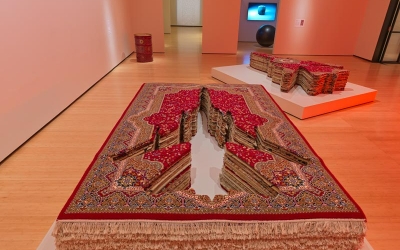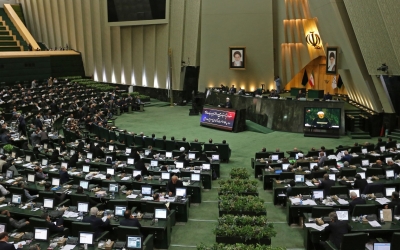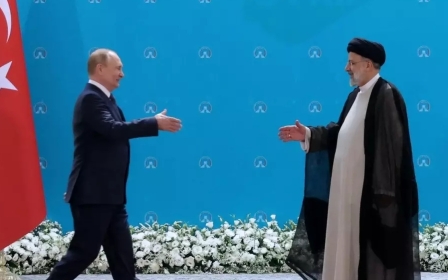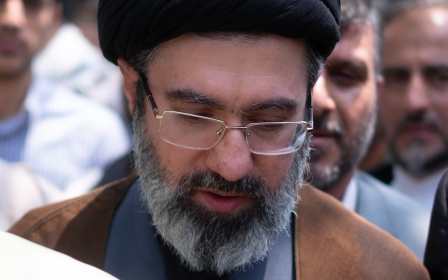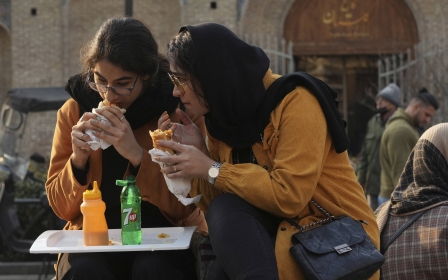Iranian press review: Missile and drone arsenal growing, say domestic reports
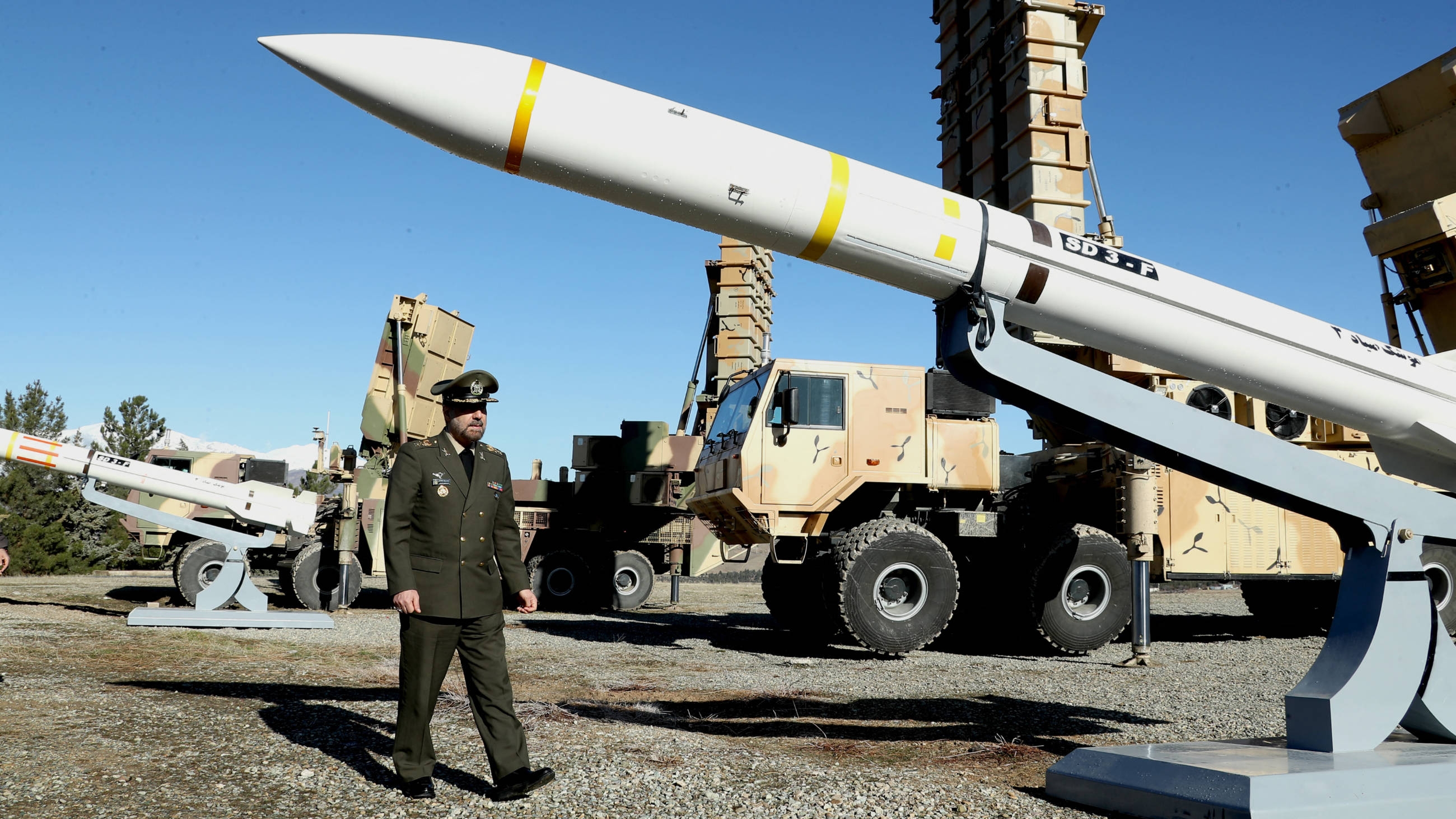
Drone and missile arsenal 'growing'
Iran's missile and drone arsenal is growing, according to reports from within the country.
Jahan News, a website closely linked with Iran's Islamic Revolutionary Guard Corps, has recently reviewed Iran's missile programme over the past Iranian year. The new Iranian year began on 20 March.
The report highlighted significant progress in Iran's missile capabilities over the past year. It listed several missile types with ranges between 20km and 2,000km, including Shafagh, Ghadr 29, Heydar, Taleih, Paveh, Fatah 1 (a hypersonic missile), Khoramsshar 4 and Fatah 2.
Iran maintains that its missile programme is purely defensive, but concerns remain about its true intentions. Western powers have consistently criticised Iran's development of advanced weaponry.
Iran's support for proxy groups in countries including Iraq, Syria, Yemen and Lebanon through missile deployment exacerbates these concerns.
Khabar Online reported Iran's progress in drone technology, specifically mentioning the production of Karrar, Ababil 4 and Ababil 5 drones.
The use of Iranian-made drones by Russia in the Ukraine war has drawn global attention to Iran's drone capability and has raised questions about its potential impact on regional and global security dynamics.
Iranians honour musician Faramarz Aslani
Iranians from all walks of life celebrated the legacy of prominent pop and folk musician Faramarz Aslani, while his recent death also fuelled political strife among establishment supporters and dissidents.
On 20 March, Aslani's wife announced the singer's death from cancer at the age of 69 after decades of living in exile in the US. Apart from his importance in Iran's musical scene, Aslani was a vocal dissident, openly supporting social movements against the establishment in Iran.
Following his death, Farsi social media was flooded with messages in his memory from other exiled artists and ordinary people. Meanwhile, walls inside Iran were plastered with graffiti in his honour. Even local opposition media reported his death under headlines such as "A genius that we lost".
Hossein Ronaghi, a prominent political activist and former political prisoner, shared on X, formerly Twitter, one of the posts that Aslani had written in support of protesters during the 2022 anti-establishment uprising.
"As he said himself, 'you will never be forgotten. The day we embrace freedom you will be with us'," wrote Ronaghi, quoting Aslani.
Despite bans on publishing Aslani's music after the 1979 revolution, former high-ranking officials also reacted to his death and commemorated his legacy.
Mohammad Abtahi, a former deputy president, shared two verses from one of Aslani's most famous songs along with a short video of one of his performances from before the 1979 revolution.
However, pro-establishment media such as the IMNA news agency highlighted Aslani's anti-establishment stances and portrayed him as an anti-revolutionary figure, not concealing their contentment at his death.
"Today, as Aslani departs, the Islamic Republic celebrates its 46th spring, poised to overcome all challenges," wrote IMNA.
Some radicals 'lack complete brain'
In one of the latest remarks regarding policies formulated by conservatives in Iran, moderate politician Mohammad Sadr expressed that extremist figures in power lack reasoning ability.
On Wednesday, Khabar Online quoted Sadr as stating: "Some radicals lack a complete brain."
Criticism from within the establishment regarding the country's governing system has surged in recent weeks following conservative and ultra right-wing politicians winning control over parliament and the Assembly of Experts in the 1 March elections.
Sadr commented on a new draft law on compulsory wearing of the Islamic hijab, which allows the judicial system to automatically deduct 30 million Iranian rials (about $713) from the bank accounts of those who fail to comply with the hijab law.
As a member of the country's Expediency Discernment Council, Sadr suggested that those advocating for the legalisation of the draft law could be linked to foreign agents or are suffering from a lack of mental well-being.
"Foreign influence extends not only to the security, economic, and oil sectors but also to the cultural sector. Anti-Islamic ideas [such as the new hijab law] are introduced into the system by some radical individuals who lack full intelligence," he was quoted as saying.
He added that implementing the new hijab law would fuel public dissatisfaction and exacerbate confrontation between the public and the establishment.
Following the 2022 uprising in Iran, the compulsory hijab law has been at the forefront of the battle between the two.
While many women have defied the compulsory hijab, the establishment has intensified punishments for non-compliance.
*Iranian press review is a digest of news reports not independently verified as accurate by Middle East Eye.
Middle East Eye propose une couverture et une analyse indépendantes et incomparables du Moyen-Orient, de l’Afrique du Nord et d’autres régions du monde. Pour en savoir plus sur la reprise de ce contenu et les frais qui s’appliquent, veuillez remplir ce formulaire [en anglais]. Pour en savoir plus sur MEE, cliquez ici [en anglais].


